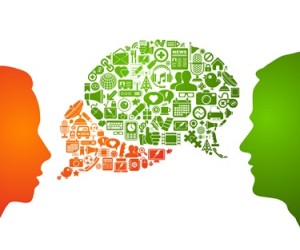Over on Pillsbury’s SourcingSpeak blog, colleagues Elizabeth Zimmer, Sandro Serra and Mia Rendar provide an in-depth exploration of the many concerns and considerations in play for organizations seeking to integrate AI systems into their own operations.
Old School Meets New School: Critical Minerals Used in Quantum Computing
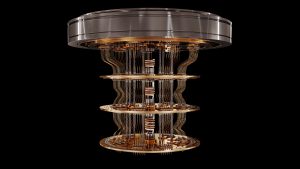 It is not every day that the rough-and-tumble “giga” world of mining and mineral refining interacts with the rarefied and metaphysical “nano” realm of quantum physics. The lawyers at Pillsbury and other law firms engaged in each endeavor rarely darken each other’s doors. But the streams are indeed converging today, as rare earths and related critical materials have been found to be uniquely suited for developments in quantum computing.
It is not every day that the rough-and-tumble “giga” world of mining and mineral refining interacts with the rarefied and metaphysical “nano” realm of quantum physics. The lawyers at Pillsbury and other law firms engaged in each endeavor rarely darken each other’s doors. But the streams are indeed converging today, as rare earths and related critical materials have been found to be uniquely suited for developments in quantum computing.
A New Dawn for Copyright in AI-Generated Works?
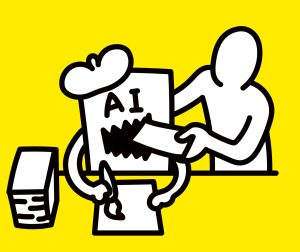 On February 21, 2023, the Copyright Office eclipsed its prior decisions in the area of AI authorship when it partially cancelled Kristina Kashtanova’s registration for a comic book titled Zarya of the Dawn. In doing so, the Office found that the AI program Kashtanova used—Midjourney—was primarily responsible for the visual output that the Office chose to exclude from Kashtanova’s registration. (Midjourney is an AI program that creates images from textual descriptions, much like OpenAI’s DALL-E.) The decision not only highlights tension between the human authorship requirements of copyright law and the means of expression that authors can use, but it also raises the question: Can AI-generated works ever be protected under U.S. copyright law?
On February 21, 2023, the Copyright Office eclipsed its prior decisions in the area of AI authorship when it partially cancelled Kristina Kashtanova’s registration for a comic book titled Zarya of the Dawn. In doing so, the Office found that the AI program Kashtanova used—Midjourney—was primarily responsible for the visual output that the Office chose to exclude from Kashtanova’s registration. (Midjourney is an AI program that creates images from textual descriptions, much like OpenAI’s DALL-E.) The decision not only highlights tension between the human authorship requirements of copyright law and the means of expression that authors can use, but it also raises the question: Can AI-generated works ever be protected under U.S. copyright law?
U.S. Department of the Treasury Confronts the Risks to the Financial Sector Associated with Cloud Computing
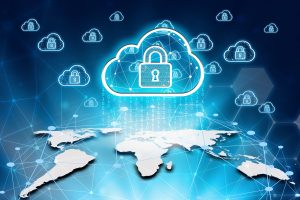 On February 8, 2023, the U.S. Department of the Treasury released a report citing its “findings on the current state of cloud adoption in the sector, including potential benefits and challenges associated with increased adoption.” Treasury acknowledged that cloud adoption is an “important component” of a financial institution’s overall technology and business strategy, but also warned the industry about the harm a technical breakdown or cyberattack could have on the public given financial institutions’ reliance on a few large cloud service providers. The Treasury also noted that “[t]his report does not impose any new requirements or standards applicable to regulated financial institutions and is not intended to endorse or discourage the use of any specific provider or cloud services more generally.”
On February 8, 2023, the U.S. Department of the Treasury released a report citing its “findings on the current state of cloud adoption in the sector, including potential benefits and challenges associated with increased adoption.” Treasury acknowledged that cloud adoption is an “important component” of a financial institution’s overall technology and business strategy, but also warned the industry about the harm a technical breakdown or cyberattack could have on the public given financial institutions’ reliance on a few large cloud service providers. The Treasury also noted that “[t]his report does not impose any new requirements or standards applicable to regulated financial institutions and is not intended to endorse or discourage the use of any specific provider or cloud services more generally.”
News of Note for the Internet-Minded (2/21/23) – Chatbots, Robots and Qubits
Generative AI Faces Familiar Challenges from “Baked In” Algorithmic Bias
Last week, Twitch banned an AI-generated production based on Seinfeld called “Nothing, Forever” from the platform for 14 days after a character named Larry Feinberg—a Jerry Seinfeld clone—made transphobic statements during his standup routine. The show’s creators blamed OpenAI’s Curie model, an older, more rudimentary version, for generating the offensive remarks. More specifically, Curie’s baked-in algorithmic bias caused it to generate the hateful comments. While jarring, the incident is by no means surprising to anyone familiar with the issue of algorithmic bias in the development and use of AI systems.
Hermès’ Trademark Tussle: The Birkin and MetaBirkin Dispute
Hermès is a luxury fashion brand famously known for its iconic Birkin handbag. Since 1986, Hermès has sold over $1 billion worth of these handbags in the United States, including over $100 million worth in the past 10 years. Even the entry-level Birkin bags sell for tens of thousands of dollars. Exotic Birkins such as the Himalaya Birkin and the special edition Faubourg Birkins fetch well over a $100,000, and as such, Birkin bags have been considered the epitome of luxury handbags. Currently, the most popular size of the Hermès Birkin is its smallest—a 25 cm Birkin lovingly nicknamed “the baby Birkin.”
From Chatter to ChatGPT: A Once Simple Tool Has Become an Industry Mainstay
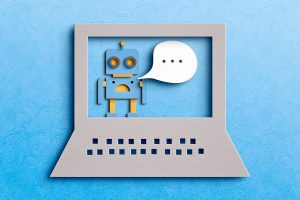 Though ChatGPT and the far-reaching consequences of AI-powered chatbots are seizing both imaginations and headlines, many industries have been capitalizing on the use of chatbots for decades. Amid cybersecurity questions and legal discourse, chatbots have gained a stronghold in key business sectors looking to maximize manpower and provide speedy customer service. Their use is common across a large range of industries spanning education and government, to manufacturing and recruitment, and everything in between. Ahead, we look at some of the industries that are leading the way in their use of chatbots.
Though ChatGPT and the far-reaching consequences of AI-powered chatbots are seizing both imaginations and headlines, many industries have been capitalizing on the use of chatbots for decades. Amid cybersecurity questions and legal discourse, chatbots have gained a stronghold in key business sectors looking to maximize manpower and provide speedy customer service. Their use is common across a large range of industries spanning education and government, to manufacturing and recruitment, and everything in between. Ahead, we look at some of the industries that are leading the way in their use of chatbots.
News of Note for the Internet-Minded (1/17/23) – AI Bans, Crypto Clamp Downs and Quantum Excitons
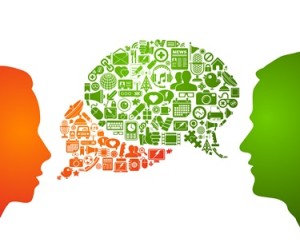 In today’s News of Note, we look at a potential boon for Sweden in the race for rare earth metals. We also ponder whether copyrights are solely for humans, or whether AI deserves equal protection for its artistic endeavors, plus the many unexpected applications (and pitfalls) surfacing as AI generators take the world by storm, and much more.
In today’s News of Note, we look at a potential boon for Sweden in the race for rare earth metals. We also ponder whether copyrights are solely for humans, or whether AI deserves equal protection for its artistic endeavors, plus the many unexpected applications (and pitfalls) surfacing as AI generators take the world by storm, and much more.
Ripps, Slapps and Apes: Yuga Labs v. Ripps, et. al. Moves Forward
You have probably heard of Bored Ape Yacht Club, a collection of non-fungible tokens (NFTs) created by Yuga Labs. These NFTs are owned by A-list celebrities and exploded in popularity in 2021. Currently, Bored Ape Yacht Club NFTs can sell for millions of dollars and are arguably one of the most popular and successful NFT collections in existence. As of January 4, 2022, it is estimated that sales of BAYC NFTs have surpassed one billion dollars. Ryder Ripps, a self-proclaimed “conceptual artist,” created his own NFT collection called the Ryder Ripps Bored Ape Yacht Club (RR/BAYC) in May 2022 using the same online digital images as the BAYC NFT collection, by generating new NFTs using the URLs embedded in the Bored Ape Yacht Club smart contracts. In July 2022, Yuga Labs, Inc. filed a lawsuit in California claiming Ryder Ripps et al. has misused trademarks owned and used by Yuga Labs since April 2021 (the BAYC Marks).





